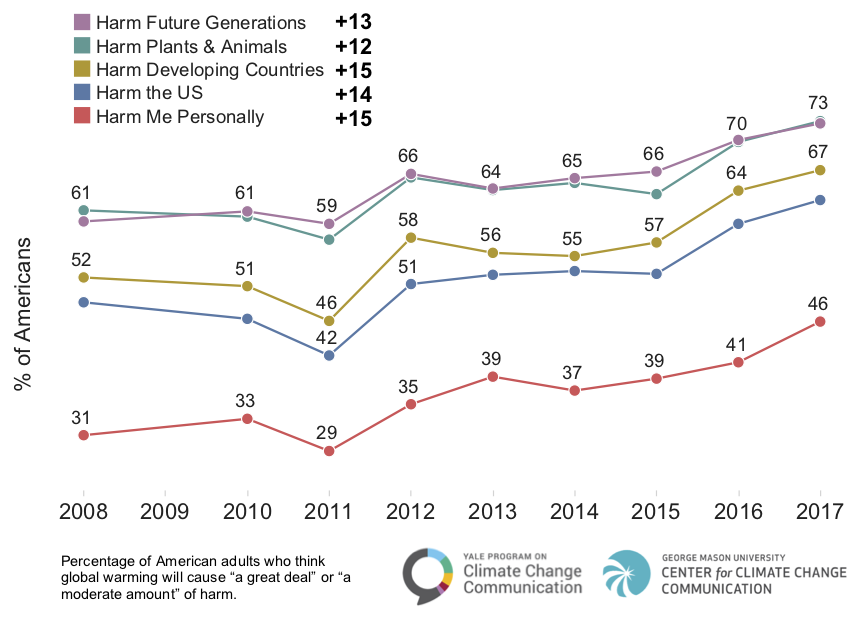Peer-Reviewed Article · Apr 17, 2019
Climate Change in the American Mind: Data, Tools, and Trends
By Matthew Ballew, Anthony Leiserowitz, Connie Roser-Renouf, Seth Rosenthal, John Kotcher, Jennifer Marlon, Matthew Goldberg and Edward Maibach
Filed under: Behaviors & Actions, Beliefs & Attitudes and Policy & Politics
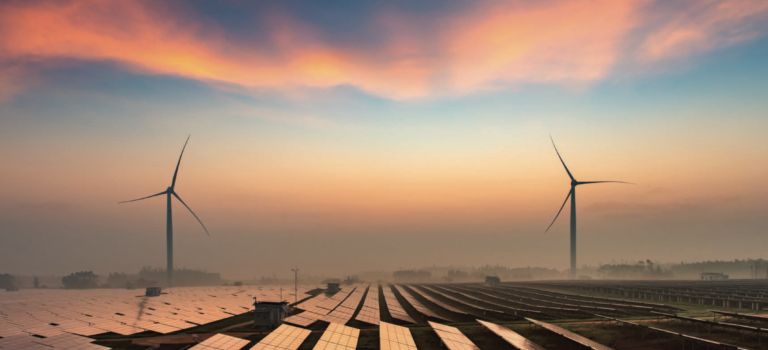
We are pleased to announce the publication of a new article: “Climate Change in the American Mind: Data, Tools, and Trends” published in the journal Environment.
We have made 10 years of our Climate Change in the American Mind (CCAM) survey data publicly available, as well as launching an interactive data visualization tool where you can explore the diversity of American responses to climate change for yourself. The tool enables you to examine Americans’ climate change beliefs, risk perceptions, policy support, and behaviors nationally, over time, and broken down by different demographic and political groups.
Here are a few highlights:
Trends in Global Warming Risk Perceptions from 2008 to 2017
Overall, American perceptions of global warming as a risk have increased considerably since 2008, reaching record high levels in 2017. Americans, however, still generally perceive global warming as a greater risk to future generations, other species, and people in developing countries than to themselves.
We also find that Americans who hear about global warming in the media or talk about it with their own family and friends are more likely to perceive global warming as a risk and support polices to reduce it.
Risk Perceptions and Policy Support by How Often Americans Hear About Global Warming in the Media
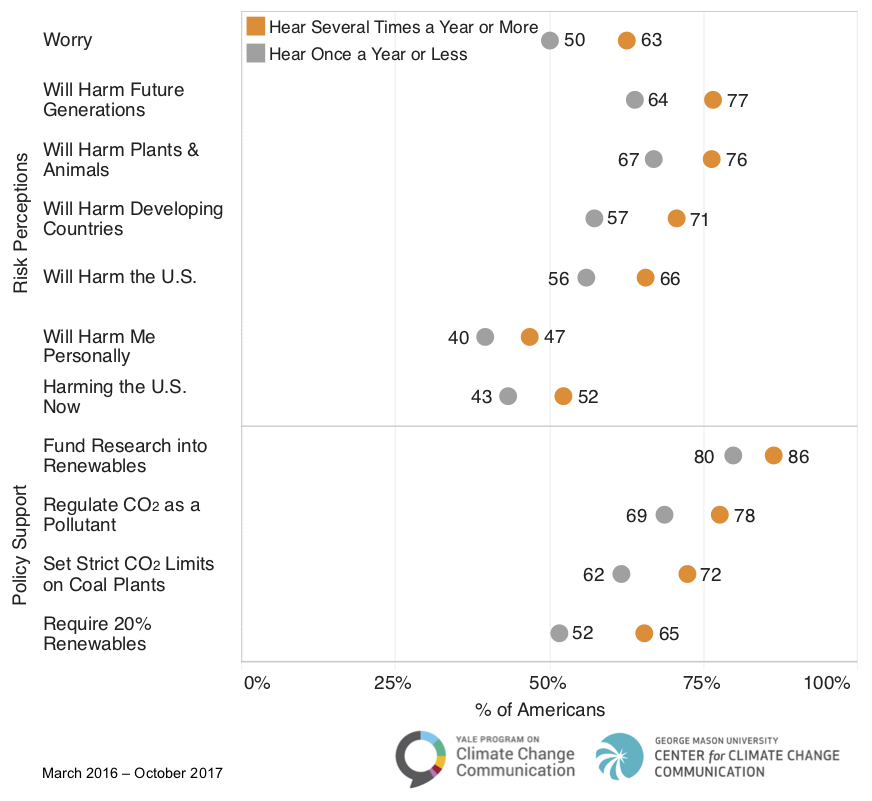
Risk Perceptions and Policy Support by How Often Americans Discuss Global Warming 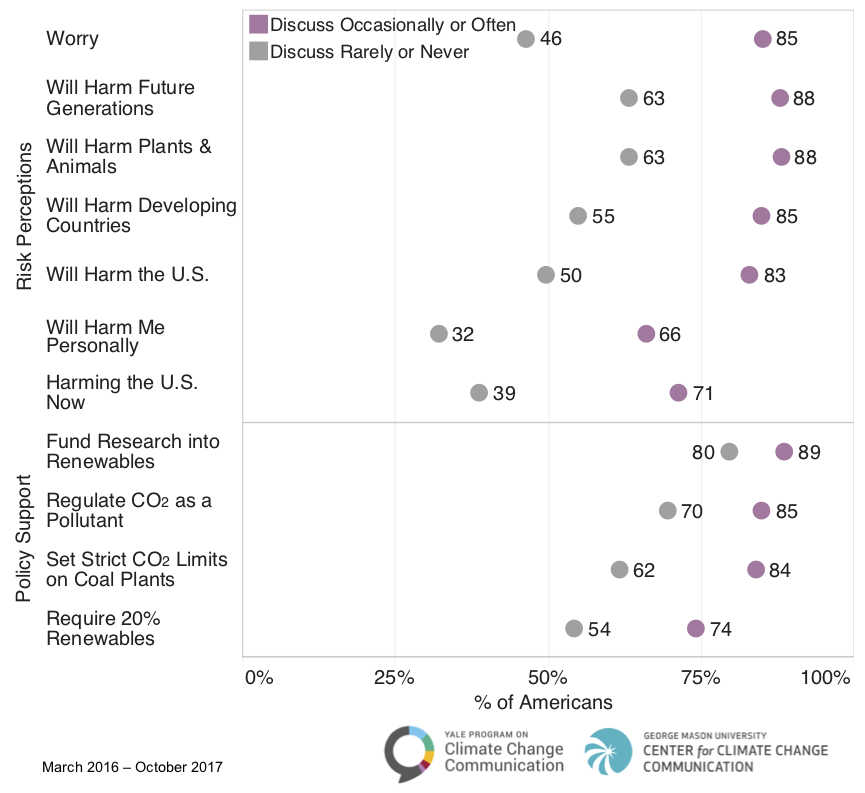
We also find interesting generational differences within the Democratic and Republican parties. Younger Democrats are not more convinced than older Democrats that global warming is happening, but are more convinced it’s human-caused and worry more about it. Younger Republicans, however, are more convinced that global warming is happening and human-caused than older Republicans and they are more worried about it.
However, both young Republicans and Democrats discuss global warming with their family and friends and hear about it in the media at much lower rates than older Republicans and Democrats, respectively.
Global Warming Views and Behaviors by Political Party and Generation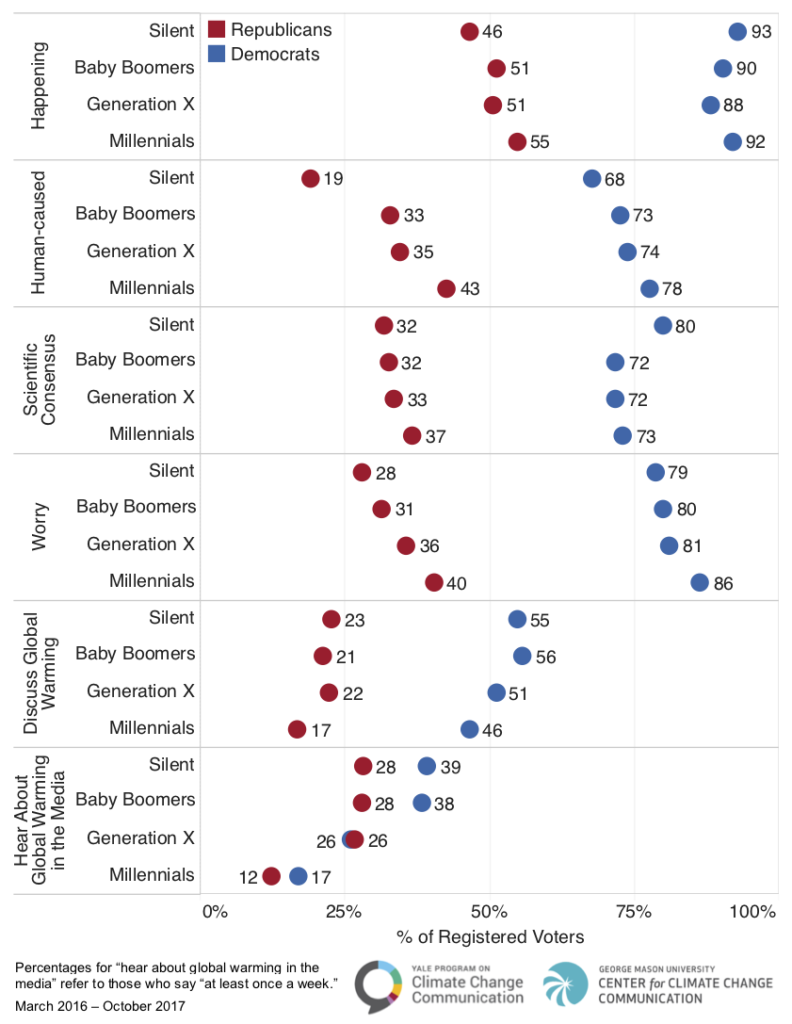
The article is available here. The underlying data are downloadable from the Open Science Framework and we encourage you to explore the data for yourself using our online interactive tool.
We hope that by making the individual survey data available, we can better support your efforts to investigate the dynamics of public opinion and engage different Americans in climate change solutions.
If you or your organization want to discuss how CCAM data can help inform your climate communications strategy, please reach out to our partnerships team: ypccc.partners@yale.edu.
Please cite the data and article when using them in your own work:
Data: Yale Program on Climate Change Communication (YPCCC) & George Mason University Center for Climate Change Communication (Mason 4C). (2019). Climate Change in the American Mind: National survey data on public opinion (2008-2017)[Data file and codebook]. doi: 10.17605/OSF.IO/W36GN
Article: Ballew, M. T., Leiserowitz, A., Roser-Renouf, C., Rosenthal, S. A., Kotcher, J. E., Marlon, J. R., Lyon, E., Goldberg, M. H., & Maibach, E. W. (2019). Climate Change in the American Mind: Data, tools, and trends. Environment: Science and Policy for Sustainable Development, 61(3), 4-18. doi: 10.1080/00139157.2019.1589300
We are very grateful to the following for their support over the years: the Schmidt Family Foundation, the Skoll Global Threats Fund, the U.S. Energy Foundation, the Grantham Foundation for the Protection of the Environment, the MacArthur Foundation, the VK Rasmussen Foundation, the Overlook Foundation and the Endeavor Foundation.
